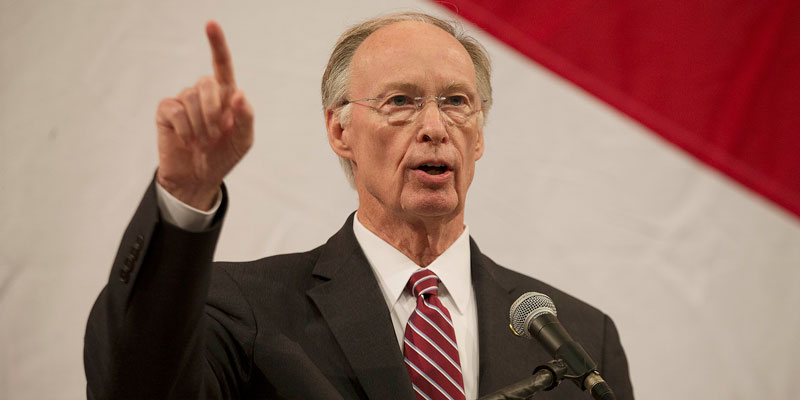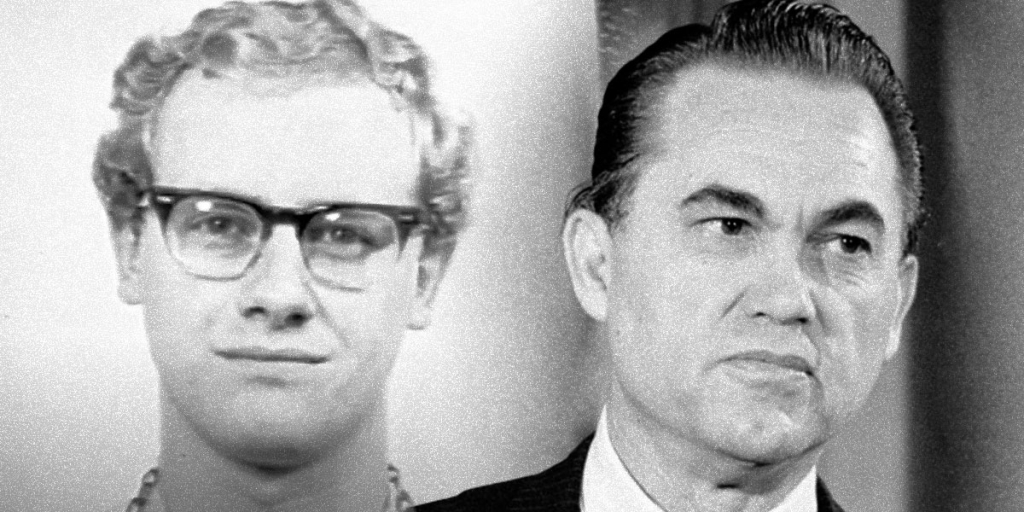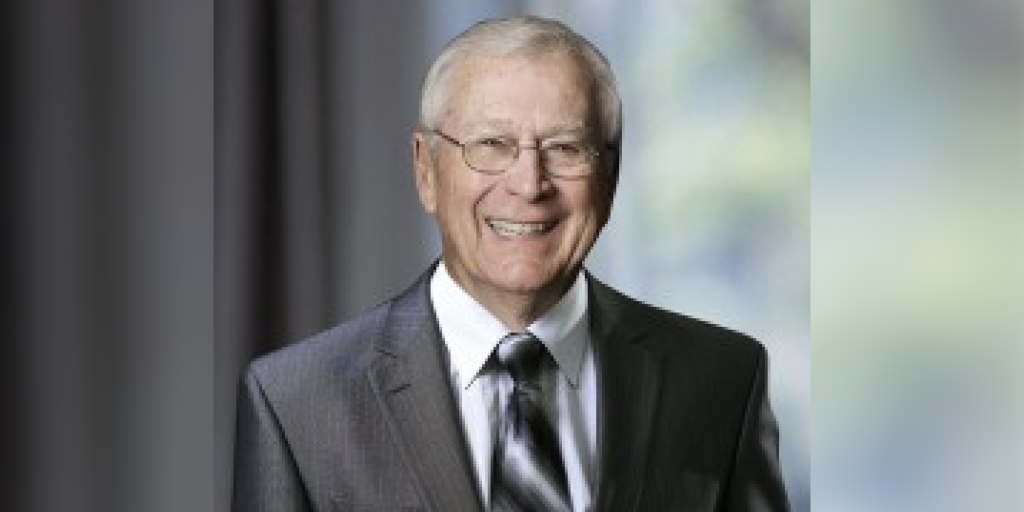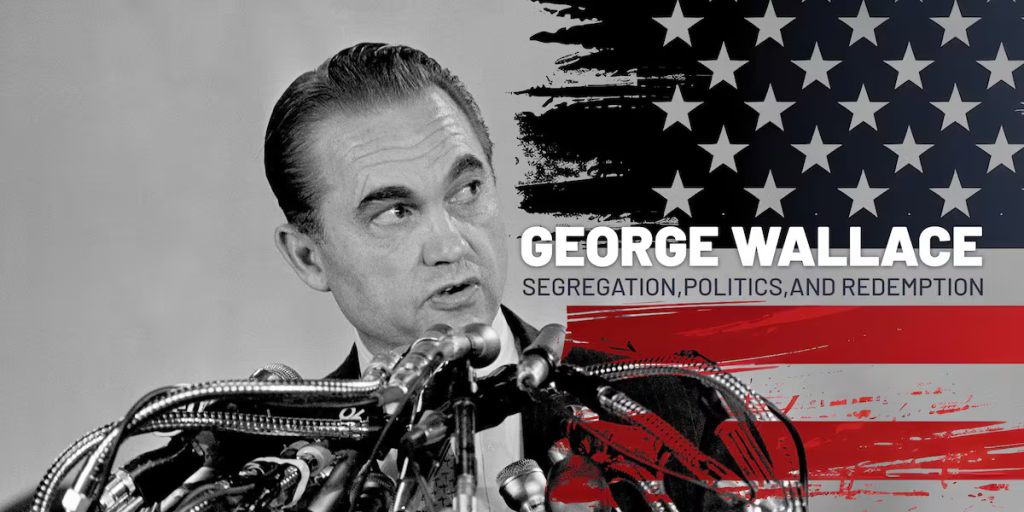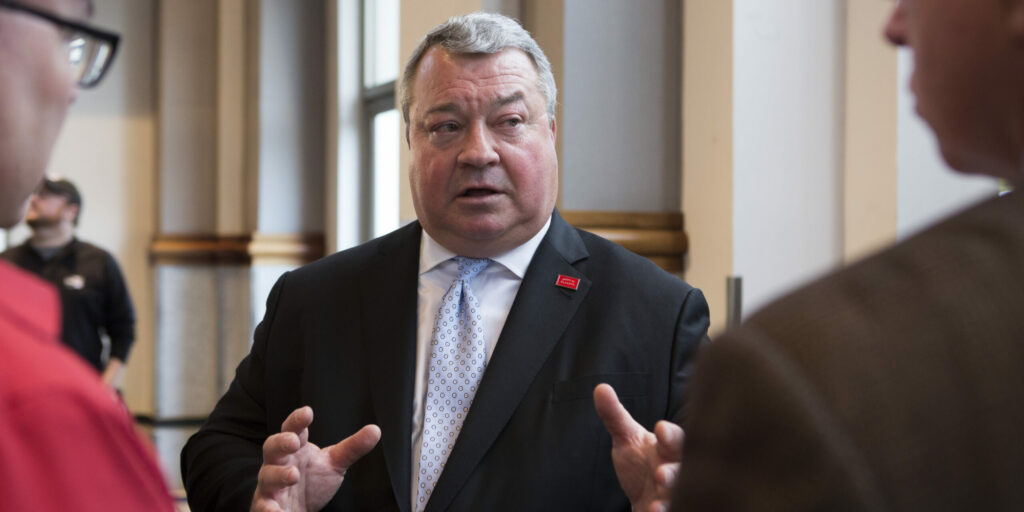Former Alabama Governor Robert Bentley was featured on Chris Stirewalt’s new Fox News Radio podcast, and the two discussed American populism and another former governor from the state, George Wallace.
The podcast was chapter five of the series called “Every Man A King,” which highlights the major players in Stirewalt’s new book of the same title.
Bentley was a student at the University of Alabama when Wallace had his infamous “Stand in the Schoolhouse Door” and, as he was taking summer classes at the time, actually attended and watched from a distance.
In Bentley’s recollection, his classmates were certainly not on Wallace’s side in that moment in history.
“[T]here was not a [racist] attitude. No-one really cared if the African-American students were admitted to the University of Alabama. There was not an uproar about it among the students. I do not remember a single student saying anything negative about them being enrolled,” he said.
However, Wallace’s audience was not the student body.
“He was not playing to us,” Bentley advised.
Wallace’s rhetoric was aimed at the masses – those who would not have been in the exclusive group of college-educated Alabamians in 1963.
He was influential, not just in the Yellowhammer State, but all across the Deep South.
Bentley told the Fox News host that his popularity stemmed from the region’s dislike of being told what to do by elites from elsewhere in the country.
“The South is made up of some unique people – very strong-willed, mostly farmers, mostly sawmillers, mostly people who are not educated but who had Scotch-Irish backgrounds. They fought a lot, they didn’t like people telling them what to do,” Bentley explained.
Wallace’s first run for governor in 1958 was akin to Huey Long populism, taking from the rich and powerful to give to the average-Joe. However, Wallace lost that campaign and then famously vowed to add race-baiting to his rhetoric in order to win next time.
Bentley commented, “I would never have done that, however, that was his choice, and I think George Wallace wanted power. He didn’t want money, he wanted power. And this is how he could develop a power structure.”
Stirewalt pointed out that Wallace had a long moral arc and his run in 1976 was essentially an apology for his previous racial rhetoric.
Bentley and Stirewalt also discussed the realignment of the Democratic Party based on their support of civil rights. As working-class white voters began to feel disenfranchised, they stopped voting for national Democrats.
This is exemplified by Wallace’s run for president in 1964 as a Dixiecrat, when he found support outside of the South in places like Wisconsin.
“I think their feeling was the same as many Southerners, they felt disenfranchised. They felt like the people [in power] had pushed things on them, that it changed their lifestyle,” Bentley outlined.
Wallace knew how to communicate to these working class people across the country who were scared of being cast aside by society.
Bentley added, “I think they were drawn more to his populism and that type of thinking. Race played a role in it, there’s no doubt about it, but it was the same feeling like telling me I’m not good enough.”
He thinks Wallace was trying to help struggling Alabamians, but taking the easy road on his quest for power clouded his intentions.
“I think Wallace, basically, was a good man,” Bentley opined. “I think he wanted to do the right thing but he was overpowered by his search for ambition. And he let that overtake the goodness that he knew – the way he should be.”
Wallace’s faults were part of the reason Bentley voted for Republican presidential nominee Barry Goldwater in 1964 against Lyndon B. Johnson, who was running for election to his own term approximately a year after the assassination of President John F. Kennedy elevated him to the presidency.
The former Alabama governor discussed growing up in a staunchly Democratic state as a Republican and seeing the state flip from blue to red over his lifetime. He also outlined the unique political quirks in the Heart of Dixie.
Bentley detailed, “Alabama is really divided into different sections. Northern Alabama is totally different from southern Alabama, and you have the Scotch-Irish, the Appalachian people. They were very independent, there were a lot of Republicans in those areas. In fact, where I grew up in Shelby County, we had a party called the Populist Republicans of Alabama. There’s a book that’s written on that … it was in three counties, and in fact, my dad was a Populist-Republican. He never voted Democrat, never voted for Wallace. And I grew up as a Populist-Republican.”
Now, the national Republican Party is populist-driven.
“Shelby County was just ahead of its time,” Stirewalt quipped.
“It’s amazing how things have changed in Alabama, just like they have in a lot of Southern states,” Bentley responded.
The roots of Wallace’s populism and Trump, as far as voter mindset goes, are one-in-the-same.
“I think the thing about it is people everywhere, they have a certain lifestyle. They don’t like someone coming in, saying ‘you are wrong and we’re going to make you change.’ That makes people defensive,” Bentley advised.
Stirewalt and Bentley also discussed Abraham Lincoln, Richard Nixon and even Alabama football.
Bentley reflected, “I think the South, and it really goes back to the Civil War, they always felt like people looked down on them … So, [Alabama] said if we can’t do anything else, we can beat them in football. And ‘we’re going to win something.’”
He also explained Bear Bryant’s lasting Alabama legacy outside of historic on-the-field success.
“[W]hen coach Bryant came to Alabama and integrated the team, it did more for opening things up than probably anything else. Because you could cheer for black athletes, and they were not black and white athletes – they were Alabama football players,” Bentley said.
“Red is the only color that matters,” Stirewalt added.
The entire 34-minute conversation can be heard here.
The interview notably comes as Bentley is seeming to ease back into public life, with speculation brewing that he is contemplating a run for the United States Senate in 2020.
Sean Ross is a staff writer for Yellowhammer News. You can follow him on Twitter @sean_yhn
Podcast: Play in new window | Download
Subscribe: RSS




